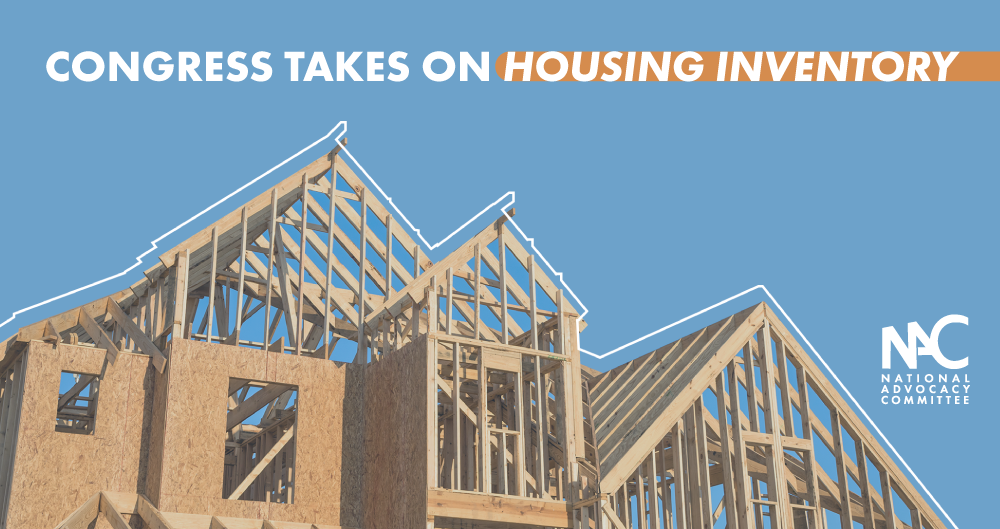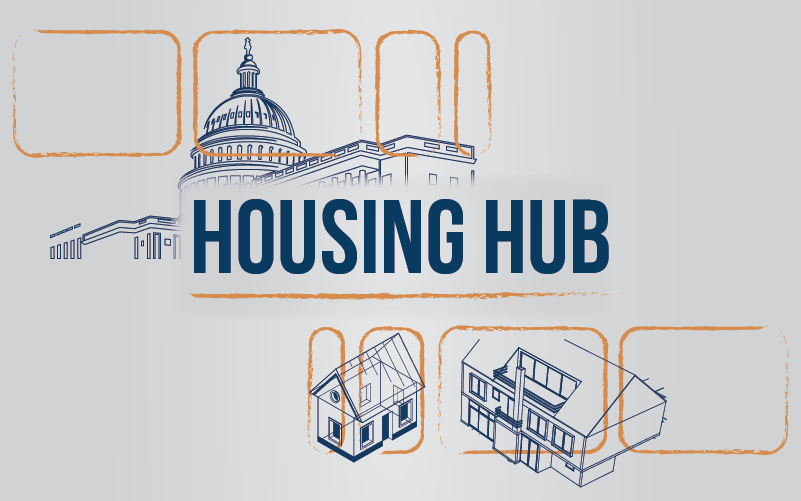Congress takes on housing inventory
Celebrating NAHREP familia, cultura, politics, and grassroots action
February 18, 2021
Qué onda mi gente?!
First of all, to all of our familia in Texas going through the freezing weather and power outages, in a state with an infrastructure not built to withstand those temperatures, I hope everyone is safe and warm. I hope all of you are putting your “San Marcos cobijas” to good use, you know you have them. To all of our NAHREP Tejanos, you’ve been in my thoughts and prayers.
Speaking of Texas, last week I met with all of the NAHREP government affairs directors in Texas. Coming from California with outrageous housing prices, I tend to see Texas as the state where all the Californian’s are moving to. However, based on that conversation, it is clear that housing inventory shortages are being felt universally across the nation, even in Texas. In order to combat this issue, every NAHREP chapter should be engaging with local elected officials on zoning reform, streamlining permit approvals, and incentives to build more housing.

While the most effective strategies are always going to be achieved at the local level, Congress has recognized a need to tackle this issue at the federal level. Below are a series of bills that have been introduced in Congress that NAHREP is supporting that address the production of new housing and zoning reform at the national level.
- Yes in My Backyard (YIMBY) Act, introduced by Senator Todd Young (R-IN), encourages but does not mandate localities to advance policies that eliminate exclusionary zoning and artificial barriers to housing production.
- Housing Supply and Affordability Act, introduced by Senator Amy Klobuchar (D-MN), would create a new local housing policy grant program administered by HUD. The proposed program would provide grants to states, localities, tribes, and regional municipal and county coalitions to support local efforts to expand housing supply.
- Build More Housing Near Transit Act, introduced by U.S. Representative Scott Peters (D-CA), would encourage greater coordination between transit agencies and local governments to align transportation investment with land use and zoning policy, enabling more housing in transit-served areas.
- Housing is Infrastructure Act of 2019, introduced by Representative Maxine Waters (D-CA), establishes competitive grant programs offering supplemental funding for transportation, infrastructure, parks, and other municipal services, to spur competition among localities and states to lower the cost of building housing in a diversity of communities.
- The Neighborhood Homes Investment Act, introduced by U.S. Senator Ben Cardin (D-MD) and U.S. Senator Rob Portman (R-OH), would create a federal tax credit that covers the cost between building or renovating a home in certain areas and the price at which they can be sold. The NHIA would also help existing homeowners in these neighborhoods to renovate and stay in their homes.
Over the past decade, Latinos have accounted for over 40 percent of household formations, driving demand for homeownership. However, the supply of housing has not kept up with this demand, resulting in prices that push homeownership out of reach for many and impossible to get an offer accepted for others.
So let’s put our grassroots advocacy to good use and urge our members of Congress to become co-sponsors of these bills and prioritize solving our nation’s housing inventory shortages this year. We can no longer wait. As we continue to put pressure on our local elected officials, let’s have our federal representatives push the gas pedal on national production of new homes. Who’s with me?
Un abrazo familia!

About Noerena Limón
Noerena Limón is NAHREP’s Executive Vice President of Public Policy and Industry Relations. Noerena heads the organization’s policy and advocacy efforts on issues ranging from homeownership, housing inventory, credit access and immigration.
Prior to joining NAHREP, Noerena spent six years at the Consumer Financial Protection Bureau (CFPB) and served as a political appointee under President Obama in the White House Office of Political Affairs.




